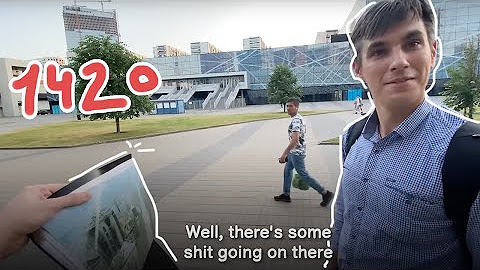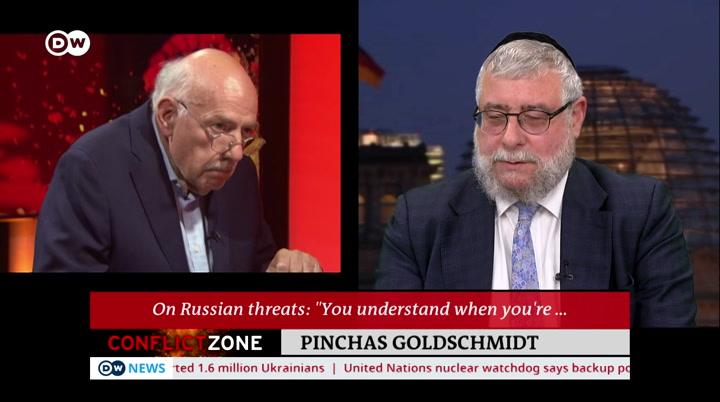
Permit me to say something in favor of YouTube. In general, the effect of social media algorithms, designed by tech savants to “sustain our engagement” with ever more provocative content, is appalling, and a significant contributor to the radicalization of the most credulous among us.
But … since the Russian invasion of Ukraine last winter I’ve found YouTube to be invaluable in feeding me information and analysis only lightly covered in standard news outlets, like even The New York Times and The Washington Post. The past week’s dramatic acceleration of the Ukrainian counter-offensive has only increased my appreciation for a tech platform that delivers me programming like multiple, new video interviews daily via London Times Radio, The Economist, the English-language service from Germany’s Die Welt and a dozen European and Russian vloggers.
A handy list of my regular go-tos for the past seven months.

London Times Radio: Eight to ten different hosts interview military and intelligence experts on developments in the war. Interview segments are generally edited down to 10 minutes or less. Particulary good are frequent appearances by Mark Galleotti, a British expert on international crime and Russian security. His basic takeaway: The Russian military has been so thoroughly corrupted by the Putin-era kleptocracy that its personnel is so essentially hopeless in the face of modern, well-trained opposition that medieval, long-range bombardment is it’s only real skill set.

Die Welt: A broadly-focused CNN-like news org which much deeper sourcing in Europe than any American outlet. Field reports from the war zone are often given 10 minutes of airtime, compared to maybe 20 seconds on ABC, NBC, etc. Particularly good though are interviews on a show called The Conflict Zone, by a Brit, Tim Sebastian, a kind of Walter Cronkite-meets-Mike Wallace eminence gris of the staff. His 25-minute interview with Pinchas Goldschmidt, chief rabbi of Moscow and president of European rabbis, was fascinating for his unwillingness to let the rabbi … the rabbi … who recently fled Russia and is now urging other Jews to follow, avoid answering the question of why after so many years of Putin he waited so long to lead vocal opposition. This sort of intelligent, but still confrontative interview never happens on American political chat shows.

Joe Blogs: The name of this channel is the British equivalent of “Joe Schmoe”, meaning it is meant to convey that these are the thoughts of just some average guy. But the host of this series is — according to his “about” page — is a finance and economics professional. And while I began by applying high skepticism to his breakdowns of Russian industrial production, sanctions-crippled tech sectors, brain drain and international shipping issues, I’ve come around to grant him a solid three and half stars out of four for reporting and fair-minded correlation of data. This video, supported by a recent (lightly reported on) Yale study, is a good example of what he does. His nearly daily videos, all broken into chapters for those too impatient to sit through all 25-30 minutes, paint a very convincing picture of the economic hellstorm falling ever heavier on Russia. 350,000 – 500,000 well-educated professionals have fled the country. Auto production has crashed by over 90%. The airline industry is cannibalizing the planes it stole from European lessors and is unlikely to survive a full year more without access to parts and software. Likewise, with each passing week the oil and gas sector is further imperiled by technology breakdowns it cannot repair or replicate because … Russia simply has no comparable home-grown technology. And forget about finding new buyers for all the oil and gas it absolutely needs to support the war and the economy. Russia can’t build pipelines to India and China, who are already getting as much as 30% discounts on each barrel that arrives (very slowly) by tanker. All in all, “Joe” is really good stuff.

1420: Nearly every day a kid by the name of Daniil Orain walks around central Moscow doing five-to-ten minute man-on-the-streeet interviews with the roughly 10-20% who’ll stop and talk to him. The questions are remarkably provocative considering Putin’s police state. “Would you leave Russia if you had a chance?” “Can we protest?”. “Do you think this conflict was necessary?” And, “Do you feel guilty?” The kid has some affluence going for him, as he has filmed in Russia’s Far East, Dubai and recently, Florence, Italy. But he takes pain to remind viewers — he speaks English — that today’s Russia is a deeply (deeply) bifurcated place, where the very European cosmopolitan look and feel of central Moscow — with vaping hipster interviewees in pink and blue hair and ubiquitous Beats earphones bears almost no resemblance to the rest of the vast country, rural areas in particular. (Putin dares not risk a draft of this crowd. In fact very few conscripts are from Moscow and St. Petersburg.) As you might expect, older Muscovites — Soviet-era Fox News types — consume only state TV and defend everything Putin does, while the young, with VPN, are well aware of the calamity befalling them. If you watch, try to count the ethnic and racial minorities you see anywhere in the frame. You’ll only need one hand.

Vasya in the Hay: You want a shot of harsh reality, Russian style? Check out this channel, regularly linked by the 1420 kid. It’s the country cousin counter balance to upscale, European Moscow and St. Petersburg. And … good lord … maybe the opioid “hollers” of Kentucky and West Virginia are as grim. But the host, travelling around wide swaths of rural Russia gives viewers a startling feel for the reality of an enormous percentage of “modern” Russians. Amid the decaying infrastructure, alcoholism, drug-addiction and 19th century housing, Sergei the (English-speaking) host plays samaritan angel, helping old women living in shacks without roofs, teenagers desperate to get away from a family of violent alcholics and interviewing nurses and caregivers doing what they can with virtually no support from Putin’s government. Worth noting is that Russian military conscripts are drawn heavily from this distressed population, simply because it’s a check — an income — they can’t get where they live. As you might expect, their willingness to play cannon fodder for an insane war is very minimal.

Task and Purpose has an informative take on the war in Ukraine and related topics.
Thanks for the list. I’d also add The Telegraph from London. The University of North Carolina at Chapel Hill posted a long form interview with retired Lieutenant General Ben Hodges two-days-ago that I found fascinating.
Hodges has made quite a few appearances on Times Radio. I particularly appreciate the succinct questions from Times interviewers.
I HAD NO IDEA THEY EXISTED OR THAT YOU WATCHED.
Excellent, thank you. I look forward to following them. I follow a young mother Ukrainian on utube “What Is Ukraine”
Another one I’ve followed is now called “Natasha’s Adventures.” She’s a 20 something living in the Far East, north of Vladivostok. Her early videos, then called “Yeah Russia” were more tours of her small town and people she met. She speaks very good English. (She was an exchange student at the University of Minnesota.) Now she’s struggling with what to do, given Russia’s isolation.
Thanks. I’ve particularly been wondering about how effective sanctions have been at weakening Russia. I can’t find much mention of sanctions effectiveness in traditional news coverage other than vague, cynical, honey badger-esque references — essentially “sanctions are happening but badass Putin don’t care.”
Sounds like Joe knows more than most.
P.S. Seven months ago, at a time when most thought Putin would easily and painlessly roll over Ukraine, Lambert called it. (Peter Maritz too) https://www.wrywingpolitics.com/i-think-putins-getting-himself-in-a-pickle/